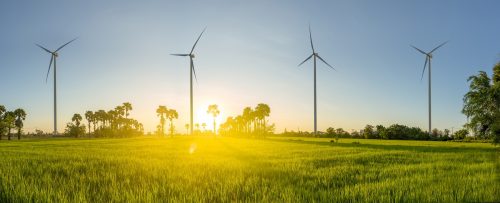Petraco Group shows commitment to a sustainable, low carbon future
Petraco is one of the oldest independent trading companies in the World, priding itself on great expertise and strong connection with its customers.

Lugano, Switzerland – December 3, 2020 /MarketersMedia/ —
Lugano, CH, Dec 3rd, 2020 – The Petraco Group has signalled its commitment to a sustainable, low carbon future. The company is currently in the process of releasing its annual Responsibility Report which will put forward Petraco’s environmental, social and governance performance for 2020. The report is likely to present the Group’s consolidated emissions in the context of its global environmental and climate change policy as well as the company’s commitment to the Paris Agreement. The latter was signed in 2016 and shows the willingness of several members of the United Nations Framework Convention on Climate Change to keep the long-term increase in global average temperature well below 2°C (3.6°F).
Many international trading companies have also produced Sustainability Reports in recent years and many have been mapped these against the United Nations 17 Sustainable Development Goals. Whilst the global demand for energy is expected to increase from the current levels there is increasing awareness that that traditional energy should increasingly be replaced by clean energy resources. Other international traders have in recent years invested in several sustainable projects in an effort to diversify, including LNG (a commodity with reduced carbon emissions), electricity, solar and wind power.
The International Energy Agency (IEA) World Energy Outlook 2018 stated that oil and gas would remain part of the energy system for decades to come, predicting that oil and gas together would provide 48% of the total final energy demand in 2040. Thus, the industry is likely to continue to have a global role in supplying affordable, reliable energy that is essential for economic development, quality of life, healthy livelihoods and eradication of poverty. Equally this role needs to support the transition to a lower carbon future.
For commodity trading houses in particular, the bulk of their emissions appears to come from their shipping activities. Commodity traders often purchase a commodity at a particular location, load it onto a vessel to then transport the goods to another location where those goods are sold. In the process those vessels use bunker fuel which creates carbon emissions. The International Transport Forum (ITF), part of the OECD system, estimates that international trade-related freight transport currently accounts for around 30% of all transport related CO2 emissions from fuel combustion, and more than 7% of global emissions. Shipping emissions are projected to increase by 240% in the ITF’s baseline scenario. Shipping emissions are dealt with in the context of the International Maritime Organisation (IMO). Through the IMO, countries have reached agreements on improving fuel efficiency of ships, mainly through ship design, and efficiency standards.
On 1 January 2020, a new global cap by the IMO on sulphur content in marine fuels came into effect. The new regulations, known as IMO 2020, mandate a maximum sulphur content of 0.5% in marine fuels globally. The driver of this change is the need to reduce the air pollution created in the shipping industry by reducing the sulphur content of the fuels that ships use. The limit for sulphur in fuel oil used on board ships operating outside designated emission control areas is reduced to 0.5% m/m (mass by mass). This will significantly reduce the amount of sulphur oxides emanating from ships and should have major health and environmental benefits for the planet, particularly for populations living close to port and coasts. The IMO estimates that the new legislation will lead to a 77% drop in overall sulphur oxide (SOx) emissions from ships – annual reduction of approximately 8.5 million metric tonnes SOx. This may be achieved on vessels by either supplying high sulphur fuel oil for ships fitted with on-board scrubbers, or by directly ensuring vessels are bunkered with either marine gasoil or low sulphur fuel oil.
The IMO regulations are a welcomed step towards a greener future. These, coupled with greater efforts to reduce corporates’ footprints, will hopefully pave the way for a more sustainable future in energy provision.
Contact Info:
Name: Luca Bianchi – Head of Public Relations
Email: Send Email
Organization: Petraco Oil Company SA
Address: Via Nassa 29, CH-6900 Lugano, Switzerland
Phone: +41919116010
Website: http://www.petraco-oil.com
Source URL: https://marketersmedia.com/petraco-group-shows-commitment-to-a-sustainable-low-carbon-future/88988359
Source: MarketersMedia
Release ID: 88988359